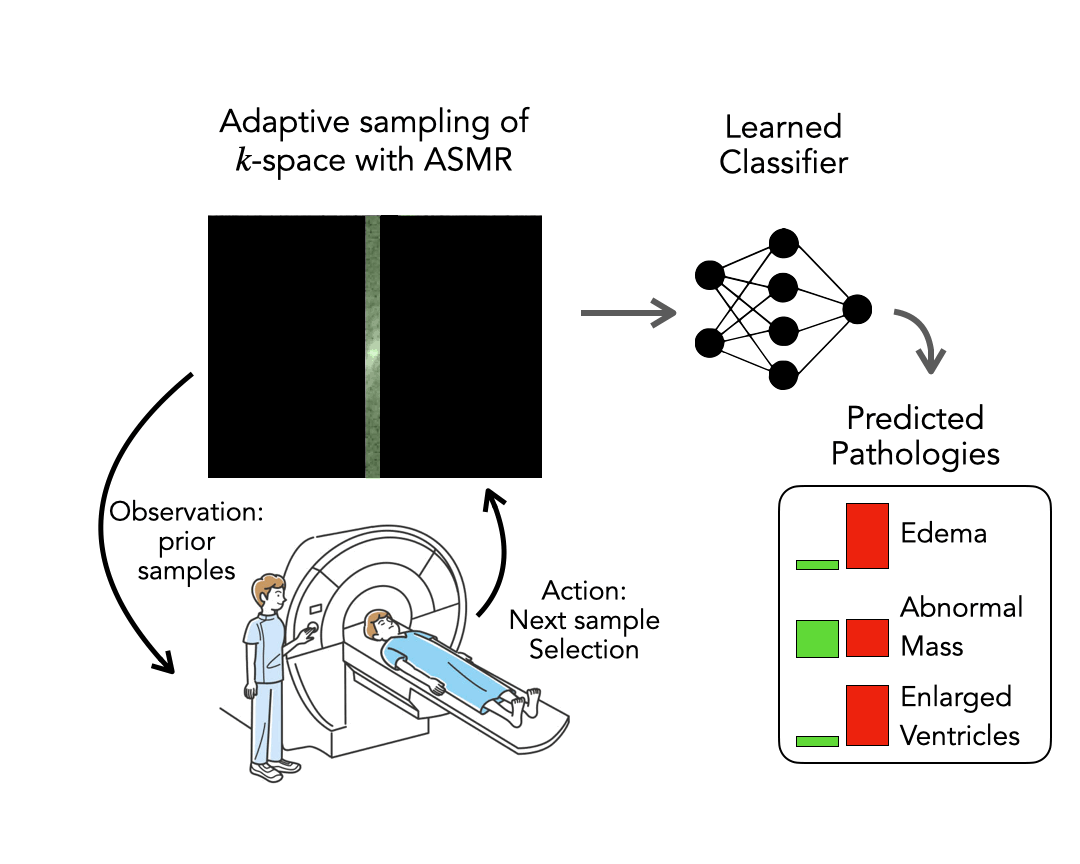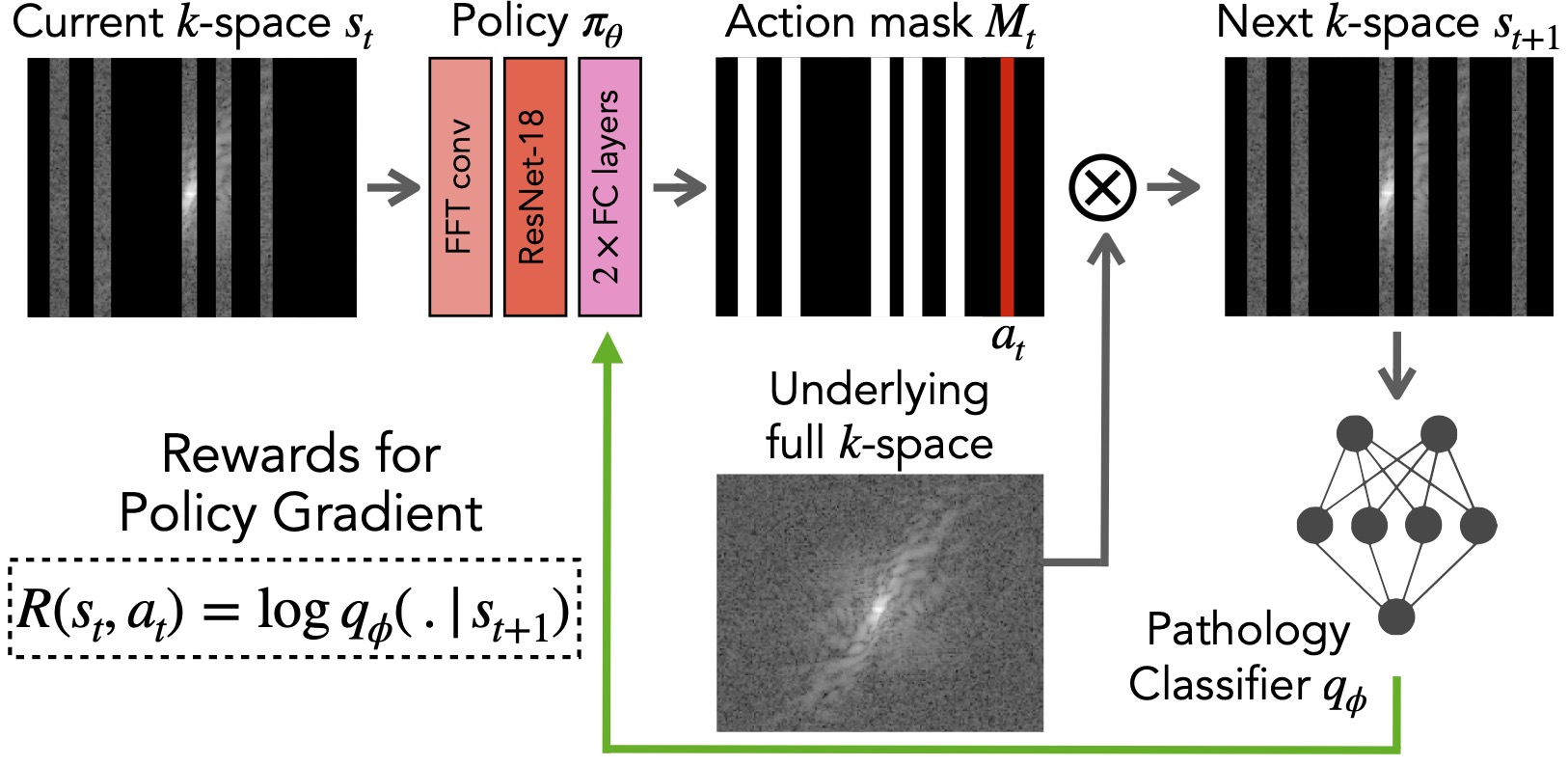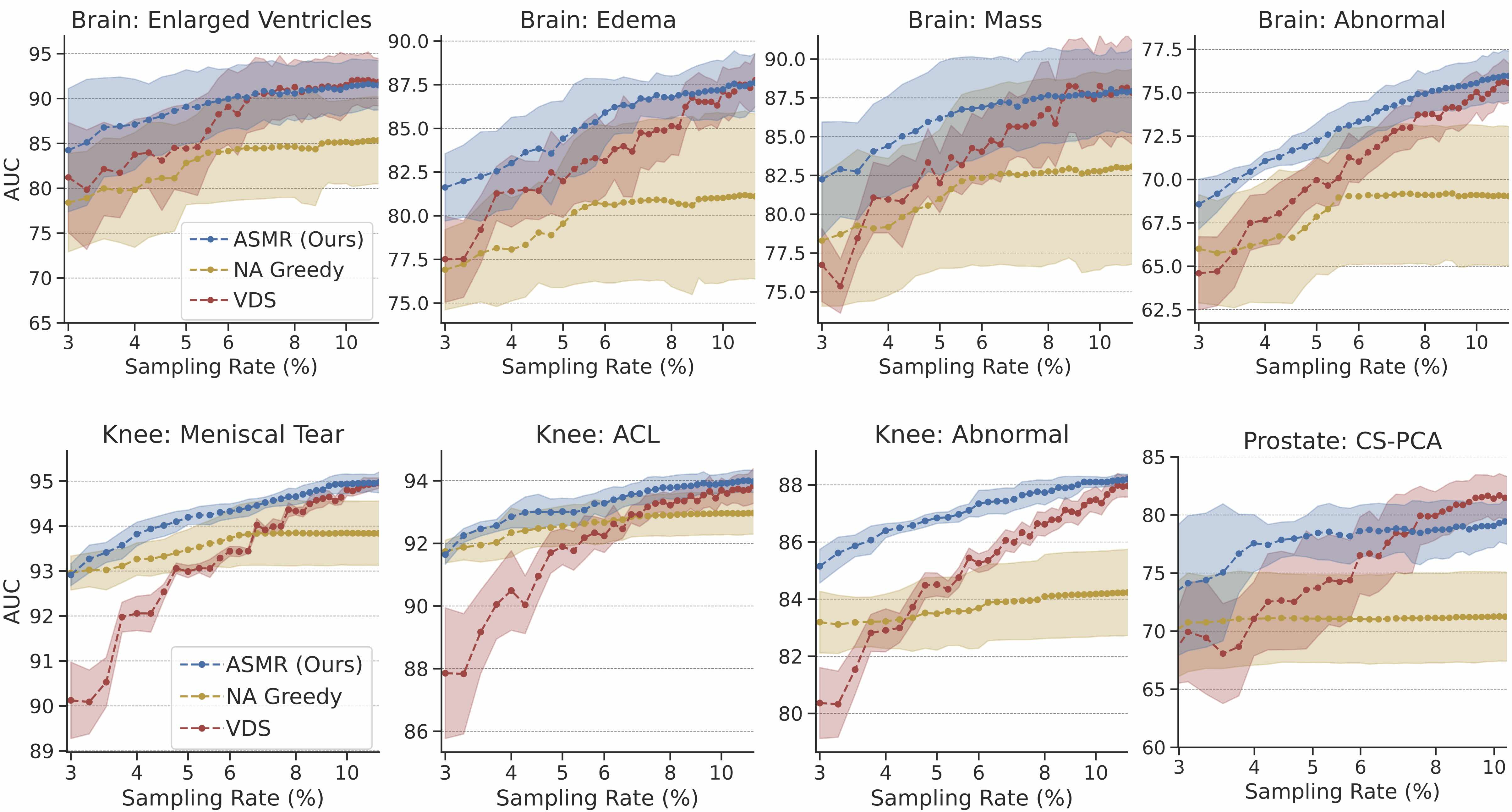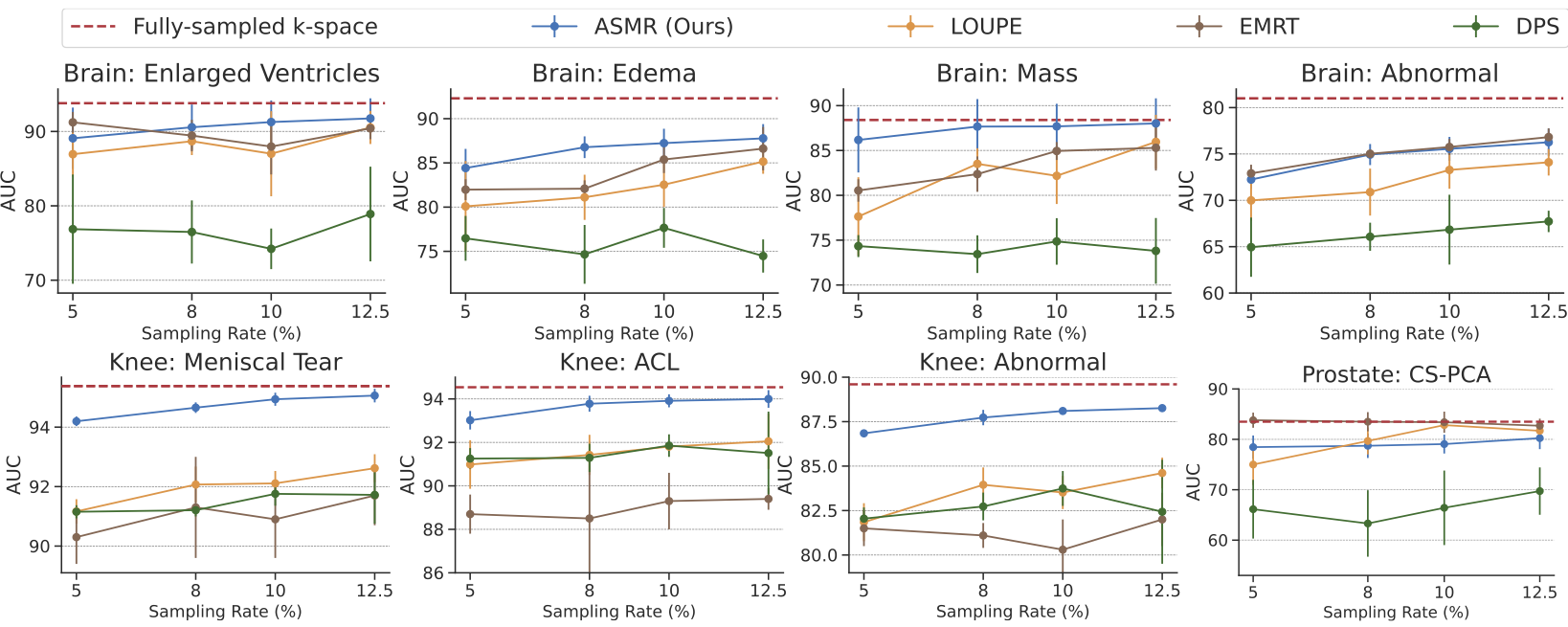Adaptive Sampling of k-space in Magnetic Resonance for Rapid Pathology Prediction
* Equal contribution
Abstract
Magnetic Resonance (MR) imaging, despite its proven diagnostic utility, remains an inaccessible imaging modality for disease surveillance at population-level. A major factor rendering MR inaccessible is lengthy scan times. An MR scanner collects data in the Fourier space, called the k-space, of the underlying anatomy. Creating a high-fidelity image requires a large amount of samples, increasing the scan time. To accelerate MR scans for disease surveillance, recent works have shown the feasibility of bypassing image reconstruction and directly learning to detect disease directly from a sparse learned subset of the k-space measurements. In this work, we propose Adaptive Sampling for MR (ASMR), an adaptive sampling method that learns a policy to sequentially select k-space samples to optimize for target disease detection. For 6/8 pathology classification tasks in Knee, Brain, and Prostate MR scans, ASMR reaches within 2% of the performance a fully sampled classifier, while using only 8% of the samples. Further, ASMR offers substantial benefits over prior state-of-the-art work in k-space sampling such as EMRT, LOUPE, and DPS.
Adaptive Sampling of k-space in Magnetic Resonance for Rapid Pathology Prediction (ASMR)

Method
Given a set of prior samples from the MR scanner, ASMR proposes the next sample to collect. These sampling steps are repeated for a fixed set of iterations T, at which point the collected samples are used by a classifier to predict the presence of a fixed set of pathologies. ASMR is trained to optimize classification performance and sidesteps reconstruction altogether.

Results I
We show the evalution of ASMR on Knee, Brain, and Prostate dataset. ASMR consistently outperforms baseline methods such as VDS random and non-adaptive greedy sequence in the low sampling regime.

Results II
We show the performance of ASMR compared to Learned Non-Adaptive Methods. ASMR outperforms LOUPE and DPS for 6 out of 8 tasks, and outperforms EMRT on 7 out of 8 tasks.

Bibtex
@misc{yen2024adaptive,
title={Adaptive Sampling of k-Space in Magnetic Resonance for Rapid Pathology Prediction},
author={Chen-Yu Yen and Raghav Singhal and Umang Sharma and Rajesh Ranganath and Sumit Chopra and Lerrel Pinto},
year={2024},
eprint={2406.04318},
archivePrefix={arXiv},
primaryClass={cs.LG}
}